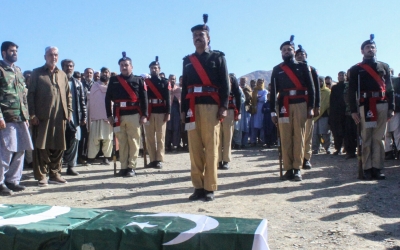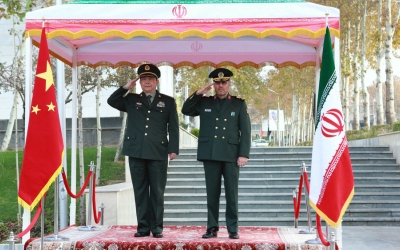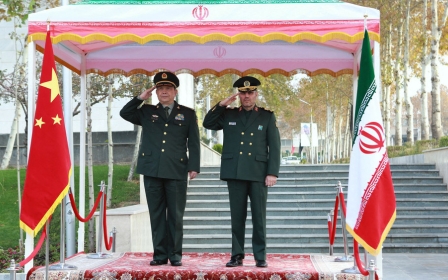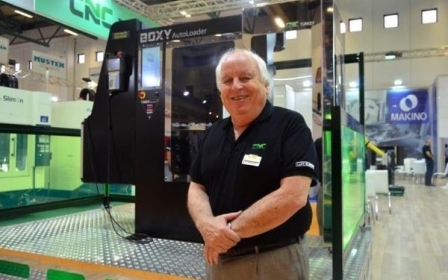Iranian press review: Leaked audio reveals IRGC divisions
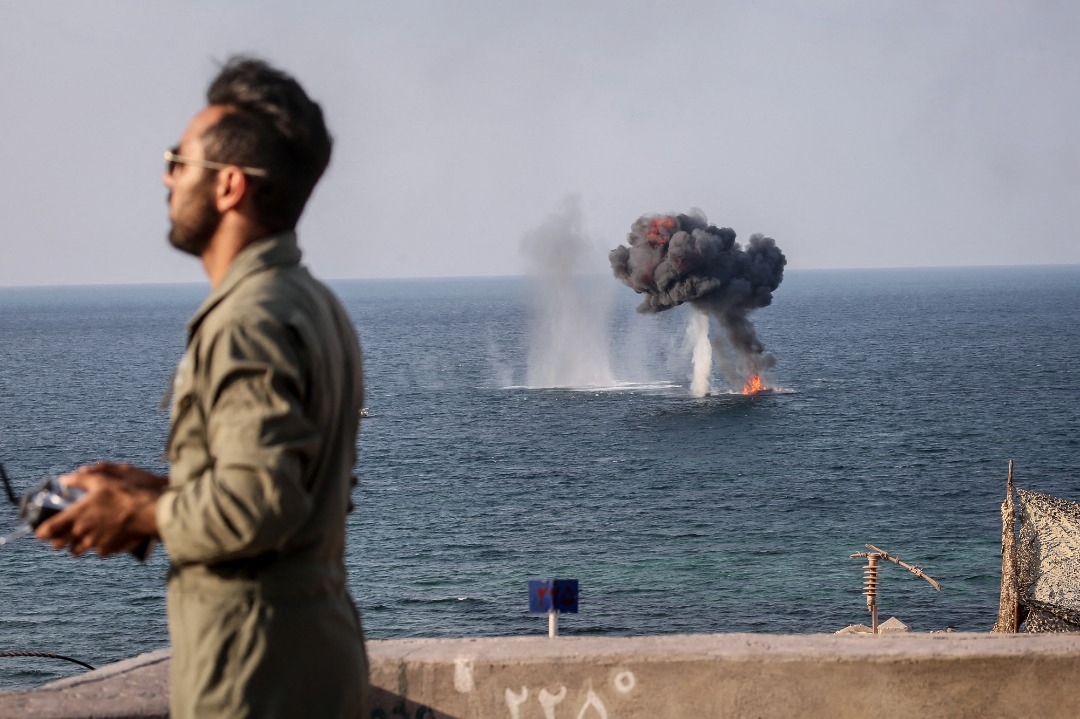
Revolutionary Guard divisions
Leaked audio that surfaced on the anniversary of the 1979 revolution has revealed divisions between the former commander-in-chief of Iran’s Islamic Revolutionary Guard Corps (IRGC) and the assassinated Iranian military commander Qassem Soleimani.
The recording of a conversation from three years ago between major general Mohammad Ali Jafari, former head of the IRGC, and his financial deputy Sadegh Zolghadrnia, was broadcast by Radio Farda, one of the Persian-language outlets funded by the US government.
In the tape, the two IRGC commanders speak about the financial activities of the elite forces in Iran. At one point, the former head of the IRGC expresses his concern over revelations of corruption in Yas Holding Company, which provided financial support to the IRGC's Quds Force under Soleimani's command.
"Qassem is just now learning what the hell has happened to him with Yas," Jafari is heard saying in the leaked audio, referring to Soleimani by his first name.
New MEE newsletter: Jerusalem Dispatch
Sign up to get the latest insights and analysis on Israel-Palestine, alongside Turkey Unpacked and other MEE newsletters
The Quds Force is one of the five branches of the IRGC, responsible for operations in foreign countries.
However, during the over 20 years Soleimani commanded the force, he only responded to Iran's Supreme Leader Ayatollah Ali Khamenei, who has the highest military position in Iran.
Debates arise over constitutional change
Ever since influential conservative politician Mohammad Reza Bahonar renewed calls for a constitutional referendum, members of different political groups have debated possible constitutional change in Iran.
On two occasions, Bahonar, a former MP and a current member of Iran's Expediency Discernment Council, spoke about the need to change how the executive body functions. He also urged Khamenei to consider a referendum on Iran's constitution.
His comments received a mixed response from various political factions in Iran. Reformists warned that the change might further reduce the role of citizens in governing the country, while conservatives welcomed Bahonar's proposal.
"What Bahonar said is what the constitution says," conservative politician Ezzatollah Yousefian Molla told Khabar Online.
"After consulting with the Expediency Discernment Council, the supreme leader can announce to the president which articles of the constitution must be changed," he added.
Meanwhile, reformist politician Gholam Ali Rajaei warned that with the current economic crisis in Iran, not many people would cast a ballot in a potential referendum.
"It is a sensitive matter, like the condition of a patient who is not ready for a surgery and might die during the surgery," the Arman daily quoted him as saying.
Deadlock in Tehran-Riyadh talks
Following four rounds of negotiations aimed at normalising relations between Iran and Saudi Arabia, sources in Iran suggested that a fifth round of talks have yet to be announced due to Riyadh's cold reception.
In January, Iranian officials suggested that the two countries were getting closer to restoring ties.
However, in recent days, they said the future of the talks depended on whether or not the Saudis actually wanted to continue the negotiations.
Last week, Iranian foreign ministry spokesperson Saeed Khatibzadeh stressed that "no new development" had occurred regarding the talks.
"Either sides' miscalculation would have a no-good result [in negotiations]," local media quoted Khatibzadeh as saying.
"We have already announced our readiness to resume the negotiations, and we are waiting for Riyadh's will to continue the talks," he added.
However, the Saudis have not commented on the potential future talks with Iran and politicians close to the circle of power in Iran believe that the gap between the two regional rivals has deepened after a series of missile and drone attacks by Yemen's Houthi rebels against targets in the United Arab Emirates.
In Yemen's civil war, Iran supports the Houthis, while Saudi Arabia and the UAE have shaped an anti-Houthi military coalition.
Omicron worsens medicine shortage
Millions of Iranians face a severe medicine shortage as the country tackles a sixth wave of the Covid-19 pandemic, local media reported.
According to the reports, pharmacies and hospitals across the country have run out of antibiotics and medical serum required to inject remdesivir, which is widely used in Iran for patients in critical condition infected with Covid-19.
"The [Covid-19] disaster is so severe that even children need remdesivir in this wave of the pandemic," the Arman daily reported.
The daily also quoted Seif al-Reza Shahabi, a former member of Iran's pharmacists' association, who said the use of antibiotics had sharply increased since the beginning of the sixth wave in the country.
Meanwhile, Bahram Daraei, the head of Iran's food and drug administration, said that the lack of funds caused by US sanctions was the main reason for the medicine shortage.
On Sunday, he told reporters the foreign currency that the government dedicated to importing medicine to Iran was only enough for six months.
Since Washington's withdrawal from an agreement with Iran in 2018 and the reimposition of harsh economic sanctions on the country, Iran witnessed an acute financial crisis that severely impacted its healthcare system.
Due to the lack of sufficient vaccines and necessary medical services, Iran has become the worst-hit country by the pandemic in the Middle East.
Since the beginning of February, when the Omicron variant swept the country, the daily death toll from Covid-19 has risen sharply.
As of Wednesday, Iran's coronavirus death toll had reached 134,238, health officials said.
* Iranian press review is a digest of reports that are not independently verified as accurate by Middle East Eye
Middle East Eye delivers independent and unrivalled coverage and analysis of the Middle East, North Africa and beyond. To learn more about republishing this content and the associated fees, please fill out this form. More about MEE can be found here.


